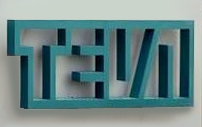Teva settles US antitrust charges for $1.2 bn
29 May 2015
The world's biggest generic drug maker Israel's Teva Pharmaceutical Industries Ltd has agreed to settle US antitrust charges for illegally blocking competition to its blockbuster sleep-disorder drug by paying $1.2 billion in compensation.
 The drug Provigil is manufactured by Cephalon Inc, a wholly-owned subsidiary of Teva, ever since it was acquired in 2012.
The drug Provigil is manufactured by Cephalon Inc, a wholly-owned subsidiary of Teva, ever since it was acquired in 2012.
In a statement, US competition watchdog Federal Trade Commission (FTC) said that the $1.2 billion will be used to compensate purchasers, including drug wholesalers, pharmacies, and insurers, who overpaid because of Cephalon's illegal conduct. Any remaining funds will be paid to the US treasury.
FTC chairwoman Edith Ramirez said: ''Today's landmark settlement is an important step in the FTC's ongoing effort to protect consumers from anticompetitive pay for delay settlements, which burden patients, American businesses, and taxpayers with billions of dollars in higher prescription drug costs.''
''Requiring wrongdoers to give up their ill-gotten gains is an important deterrent,'' she stressed.
Provigil is a prescription drug used to treat excessive sleepiness in patients with sleep apnea, narcolepsy, and shift-work sleep disorder.
The US sales of Provigil exceed $1 billion in the year before its generic entry, according to the FTC.
The settlement dates back to an FTC lawsuit in 2008 charging Cephalon for illegal protection of its Provigil monopoly through agreements with four generic drug manufacturers during 2005 and 2006.
Cephalon was alleged suing the drug makers for patent violation and later paid them $300 million to drop their dispute and forgo marketing their generic products for six years, until April 2012.
This type of settlement, commonly known as a ''reverse-payment'' patent settlement, can violate competition laws, according to the US supreme court, which made a ruling on a similar 2013 case between FTC and Actavis.
As part of the deal, Teva also has agreed to a prohibition on anticompetitive reverse payment agreements that Cephalon used to artificially inflate the price of Provigil.
The proposed stipulated order bars Teva from entering into a business deal with a rival within 30 days of, or expressly conditioned on, a patent litigation settlement that restricts that competitor's generic entry.
This will not prevent Teva from entering into truly independent business transactions, and it preserves Teva's ability to enter other types of settlements in which the value transferred is unlikely to present antitrust concerns, the FTC said.
The FTC has voted 5-0 to pass the settlement, which further requires the approval of the US district court for a final resolution. A trial in the case is scheduled to begin in the eastern district court of Pennsylvania on 1 June.


















